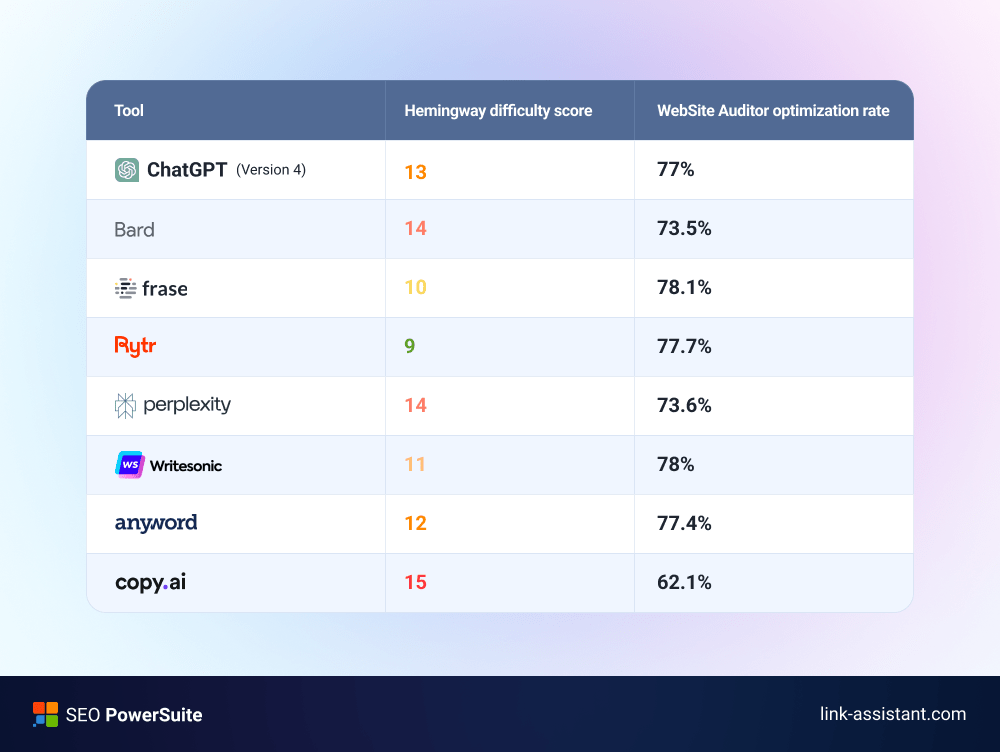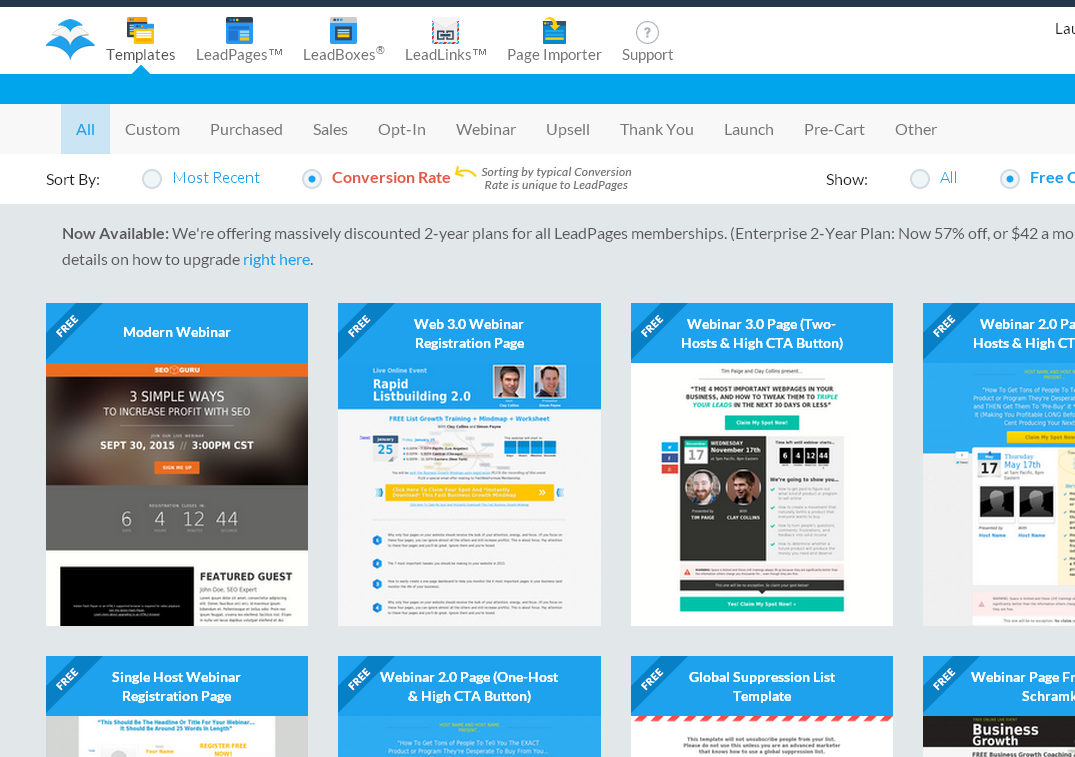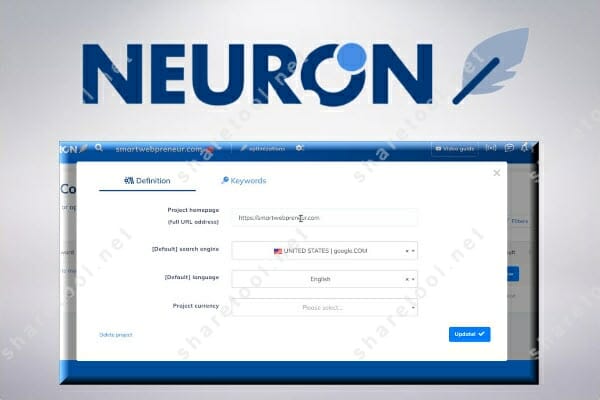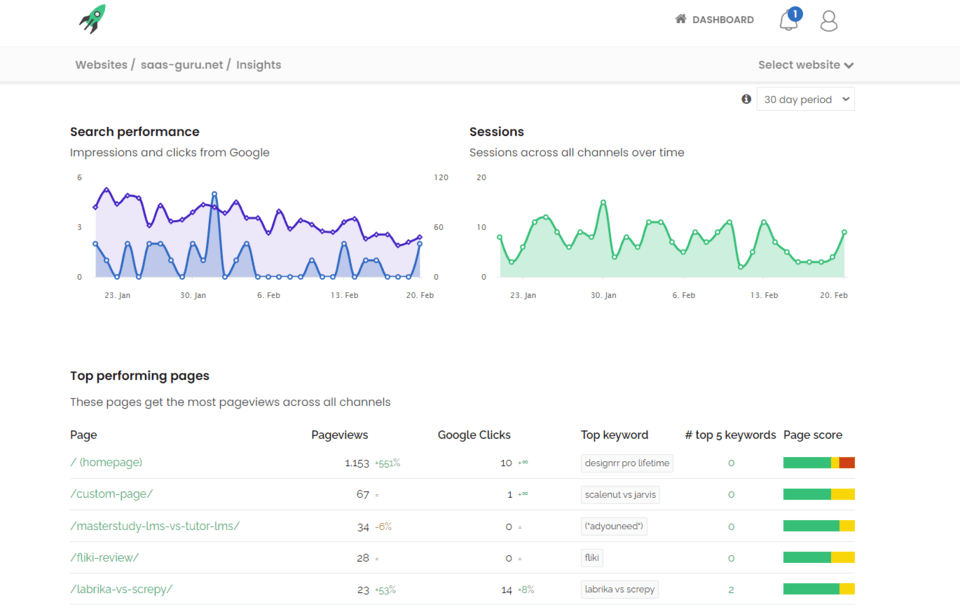In the ever-evolving landscape of digital marketing, the demand for high-quality, search engine optimized (SEO) content has never been greater. As businesses strive to captivate their target audience and climb the search engine rankings, the role of AI writers has become increasingly vital. In 2024, the best AI writers for SEO content will be those that can seamlessly blend creativity, technical prowess, and a deep understanding of search engine algorithms.
What to Look for in an AI Writer for SEO Success

When evaluating AI writers for your SEO content needs, there are several key factors to consider:
1. Optimization Expertise
The ideal AI writer should possess a robust understanding of SEO principles, including keyword research, on-page optimization, and content structure. They should be able to craft content that not only resonates with your target audience but also aligns with search engine guidelines.
2. Adaptability and Versatility
The best AI writers are those that can adapt to your unique brand voice and tone, ensuring a cohesive and consistent content strategy. They should be capable of producing a wide range of content types, from blog posts and web pages to product descriptions and social media updates.
3. Analytical Capabilities
A top-performing AI writer should be able to analyze data, understand user intent, and leverage insights to create content that truly connects with your audience. This includes the ability to interpret search trends, evaluate competitor strategies, and make data-driven decisions.
4. Creativity and Originality
While optimization is crucial, AI writers must also possess the creativity to craft compelling, engaging, and unique content. The ability to generate fresh ideas, compelling narratives, and captivating visuals is essential for standing out in a crowded online landscape.
Top AI Writing Tools for SEO Content Creation: Feature Breakdown

In the rapidly evolving world of AI-powered content creation, a number of impressive tools have emerged to support your SEO efforts. Let’s explore some of the top AI writing tools and their key features:
1. Jasper AI
Key Features:
- Comprehensive content generation capabilities, including blog posts, product descriptions, and social media updates
- Advanced keyword research and optimization capabilities
- Seamless integration with popular SEO tools like Surfer SEO and Semrush
- Multilingual support and tone adjustment options
2. Copysmith
Key Features:
- Specialized templates for various types of SEO-optimized content, such as title tags, meta descriptions, and H1 headings
- Robust keyword research and analysis functionalities
- Automated content optimization and readability improvements
- Collaborative features for team-based content creation and review
3. Writesonic
Key Features:
- AI-powered generation of SEO-focused content, including articles, product descriptions, and landing pages
- Integrated tools for keyword research, competitor analysis, and content performance tracking
- Multilingual support and tone customization options
- Seamless integration with popular content management systems (CMS) like WordPress
4. Frase
Key Features:
- Comprehensive SEO content optimization, including keyword analysis, topic research, and content structure recommendations
- AI-generated content outlines and drafts, with the ability to customize and refine
- Competitor analysis and content gap identification
- Integration with various SEO tools and platforms
5. Rytr
Key Features:
- Diverse content generation capabilities, spanning blog posts, product descriptions, and social media copy
- Customizable tone and voice options to align with your brand
- Keyword research and optimization suggestions
- Multilingual support and the ability to translate content
These are just a few of the top AI writing tools available for SEO content creation. As you evaluate your options, be sure to assess the specific features, pricing, and integration capabilities that best align with your business needs and SEO goals.
Harnessing AI Power for Optimized Content: Strategies and Best Practices

To effectively leverage AI writers for SEO content creation, it’s crucial to employ a strategic approach. Here are some best practices to consider:
1. Establish Clear Content Goals and KPIs
Before engaging with an AI writer, clearly define your content goals, target audience, and desired key performance indicators (KPIs). This will help ensure that the AI-generated content aligns with your overall SEO strategy and delivers measurable results.
2. Provide Comprehensive Briefing and Guidance
Work closely with your AI writer to provide detailed briefs, including target keywords, tone of voice, and other relevant information. This will enable the AI to produce content that is tailored to your brand and SEO requirements.
3. Incorporate Human Review and Refinement
While AI writers can greatly streamline the content creation process, it’s essential to maintain a human review process. This allows you to ensure the content meets your quality standards, aligns with your brand voice, and is optimized for search engine performance.
4. Continuously Optimize and Iterate
SEO is an ongoing process, and your content strategy should evolve alongside search engine algorithms and user preferences. Regularly review the performance of your AI-generated content, identify areas for improvement, and refine your approach to achieve better results.
5. Leverage AI for Complementary SEO Tasks
In addition to content creation, AI can be a powerful tool for various SEO-related tasks, such as keyword research, topic ideation, and even on-page optimization. Explore integrating AI capabilities across your entire SEO workflow to maximize efficiency and effectiveness.
By following these best practices, you can harness the power of AI writers to create high-performing, SEO-optimized content that drives visibility, engagement, and ultimately, business growth.
AI Writers for SEO vs. Human Writers: Finding the Right Balance

When it comes to SEO content creation, the debate between AI writers and human writers often arises. Both have their unique strengths and weaknesses, and the ideal solution may lie in finding the right balance between the two.
AI Writers for SEO: Advantages and Limitations
Advantages:
- Scalability: AI writers can generate content at a much faster pace than human writers, allowing you to produce a larger volume of content.
- Consistency: AI writers can maintain a consistent tone, style, and level of optimization across all content pieces.
- Cost-effectiveness: Automated content generation can be more cost-effective in the long run compared to traditional human writing services.
Limitations:
- Lack of Contextual Understanding: AI writers may struggle to fully grasp the nuances of your brand, industry, and target audience, potentially resulting in content that lacks depth and authenticity.
- Limited Creativity: While AI writers can generate unique content, they may struggle to come up with truly innovative, out-of-the-box ideas that human writers can often provide.
- Potential Quality Issues: Depending on the AI model and the input data, the quality of AI-generated content may not always meet your standards, requiring extensive human review and refinement.
Human Writers for SEO: Advantages and Limitations
Advantages:
- Deeper Contextual Understanding: Human writers can better immerse themselves in your brand, industry, and target audience, resulting in more authentic and engaging content.
- Superior Creativity: Human writers can bring a level of creativity and originality that AI writers may struggle to match, helping you stand out in a crowded online landscape.
- Ability to Interpret Data and Insights: Human writers can more effectively leverage data and insights to craft content that resonates with your target audience and aligns with your SEO objectives.
Limitations:
- Scalability: Human writers have a limited capacity, and scaling content production can be more challenging and time-consuming.
- Consistency: Maintaining a consistent tone, style, and level of optimization across multiple pieces of content can be more difficult with human writers.
- Cost: Hiring and managing a team of human writers can be more resource-intensive compared to relying on AI-powered content generation.
The most effective approach often involves finding the right balance between AI writers and human writers, leveraging the strengths of each to create a cohesive and high-performing SEO content strategy. By strategically integrating AI-generated content with human-crafted pieces, you can achieve the best of both worlds: scalability, optimization, and authenticity.
Beyond Content Generation: AI for SEO Keyword Research and Optimization
While AI writers can streamline the content creation process, their capabilities extend far beyond just generating text. AI can also be a powerful tool for various other SEO-related tasks, including keyword research and on-page optimization.
AI-Powered Keyword Research
AI-based keyword research tools can analyze search trends, user intent, and competitor data to identify the most relevant and high-performing keywords for your SEO strategy. By leveraging machine learning algorithms, these tools can provide valuable insights that human researchers may miss, helping you uncover untapped opportunities and optimize your content accordingly.
Key Features of AI Keyword Research Tools:
- Comprehensive keyword analysis and suggestions
- Identification of long-tail and related keywords
- Competitor keyword gap analysis
- Automated keyword grouping and clustering
AI-Driven On-Page Optimization
Beyond content generation, AI can also be employed to optimize your web pages for better search engine performance. AI-powered tools can analyze your existing content, identify areas for improvement, and provide recommendations for optimizing elements such as title tags, meta descriptions, header structure, and image alt text.
Key Features of AI On-Page Optimization Tools:
- Automated content analysis and optimization suggestions
- Readability and word count optimization
- Structured data and schema markup recommendations
- Intelligent internal linking and content organization
By integrating AI-powered keyword research and on-page optimization tools into your SEO workflow, you can enhance the overall effectiveness of your content strategy, ensuring that your content not only resonates with your target audience but also aligns with search engine guidelines and algorithms.
Case Studies: How Businesses are Using AI Writers to Achieve SEO Goals
To illustrate the real-world impact of AI writers in the realm of SEO, let’s explore a few case studies:
Case Study 1: Ecommerce Brand Boosts Organic Traffic by 35% with AI-Generated Product Descriptions
A leading ecommerce brand specializing in outdoor gear struggled to keep up with the demand for unique, SEO-optimized product descriptions across their extensive catalog. By integrating an AI writing tool, the brand was able to generate high-quality product descriptions that incorporated relevant keywords, engaging narratives, and targeted sales messaging. This resulted in a 35% increase in organic traffic and a significant improvement in search engine rankings for their product pages.
Case Study 2: SaaS Company Streamlines Blog Content Production with AI Writers
A fast-growing SaaS company recognized the need to maintain a consistent, SEO-focused blog to attract and engage their target audience. By leveraging an AI writer, the company was able to efficiently produce a large volume of high-quality blog content, including in-depth industry insights and step-by-step tutorials. This not only boosted their search engine visibility but also enabled the content team to focus on more strategic initiatives, leading to a 25% increase in organic lead generation.
Case Study 3: B2B Firm Achieves 40% Reduction in Content Creation Costs with AI
A B2B consulting firm faced the challenge of creating a steady stream of SEO-optimized content to support their thought leadership and lead generation efforts. By implementing an AI writing solution, the firm was able to generate a wide range of content types, including white papers, case studies, and industry reports, at a fraction of the cost of traditional human writing services. This 40% reduction in content creation costs allowed the firm to invest more resources into content promotion and other high-impact marketing initiatives.
These case studies demonstrate how businesses across various industries have successfully leveraged AI writers to streamline their SEO content production, improve search engine performance, and achieve their growth objectives. As the technology continues to evolve, the potential for AI to transform the world of SEO content creation is only expected to grow.
The Future of AI in SEO: Trends and Predictions
As we look towards the future, the role of AI in SEO content creation is poised to become even more significant. Here are some key trends and predictions to consider:
1. Advancements in Natural Language Processing (NLP)
Continuous improvements in NLP will enable AI writers to produce content that is more contextually relevant, nuanced, and aligned with search engine algorithms. This will result in a more seamless integration of AI-generated content into overall SEO strategies.
2. Personalization and Hyper-Targeted Content
AI will play a crucial role in creating highly personalized content tailored to the unique preferences and behaviors of individual users. This will allow businesses to deliver a more engaging and relevant experience, ultimately improving search engine performance.
3. Multimodal Content Generation
AI will evolve to generate content that combines multiple media formats, such as text, images, and videos. This will enable businesses to create more immersive, SEO-optimized content experiences that captivate their target audience.
4. Real-Time Content Optimization
AI-powered tools will provide real-time insights and recommendations for optimizing content as it is being created, ensuring that it aligns with the latest search engine algorithms and user preferences.
5. Ethical Considerations and Transparency
As the use of AI in content creation becomes more widespread, there will be an increased focus on ethical considerations, such as transparency, bias mitigation, and responsible AI practices. Businesses will need to address these concerns to maintain trust and credibility with their audience.
By staying informed and proactive about these emerging trends, businesses can position themselves to harness the full potential of AI in their SEO content strategies, driving long-term growth and success in the ever-evolving digital landscape.
Ethical Considerations in AI Content Creation for SEO
As the adoption of AI in content creation continues to grow, it’s essential to consider the ethical implications and ensure that the use of this technology aligns with responsible practices.
Transparency and Disclosure
One of the key ethical considerations is the need for transparency and disclosure. Businesses should be upfront about their use of AI in content creation and clearly indicate when content has been generated or assisted by AI. This ensures that users can make informed decisions and maintains trust in the brand.
Bias Mitigation
AI models can potentially perpetuate or amplify biases present in the training data. Businesses must proactively address this issue by implementing robust bias mitigation strategies, such as diverse data sampling, algorithmic fairness testing, and human-in-the-loop review processes.
Intellectual Property and Originality
The use of AI in content creation raises questions around intellectual property and the originality of the generated content. It’s crucial to establish clear guidelines and policies to ensure that AI-generated content does not infringe on copyrights or trademarks, and that it is sufficiently unique and distinct from existing works.
Compliance with Search Engine Guidelines
Search engines have specific guidelines and policies regarding the use of AI in content creation. Businesses must ensure that their AI-powered content strategies align with these guidelines, avoiding any practices that could be perceived as deceptive or manipulative by search engines.
Ongoing Monitoring and Evaluation
Ethical AI content creation for SEO is an ongoing process that requires continuous monitoring and evaluation. Businesses should regularly review their AI-powered content strategies, assess their impact, and make necessary adjustments to maintain the highest standards of transparency, fairness, and compliance.
By addressing these ethical considerations, businesses can leverage the power of AI in content creation while upholding the principles of transparency, fairness, and responsible innovation. This approach not only ensures the long-term success of their SEO efforts but also builds trust and credibility with their audience.
Choosing the Best AI Writer for Your SEO Needs: A Step-by-Step Guide
Selecting the right AI writer for your SEO content needs can be a daunting task, given the growing number of options available in the market. Here’s a step-by-step guide to help you make an informed decision:
1. Clearly Define Your SEO Content Objectives
Start by clearly outlining your SEO content goals, target audience, and the types of content you need to produce. This will help you identify the specific features and capabilities you require from an AI writing solution.
2. Evaluate the AI Writer’s SEO Optimization Expertise
Assess the AI writer’s understanding of SEO principles, including keyword research, on-page optimization, and content structure. Look for case studies or testimonials that demonstrate their ability to create content that performs well in search engine rankings.
3. Assess the AI Writer’s Adaptability and Versatility
Ensure that the AI writer can seamlessly adapt to your brand’s unique voice and tone, and that they can produce a wide range of content types, from blog posts and web pages to product descriptions and social media updates.
4. Prioritize Analytical Capabilities
Look for AI writers that can provide data-driven insights, interpret user intent, and leverage analytics to create content that resonates with your target audience.
5. Evaluate the AI Writer’s Creativity and Originality
While optimization is crucial, the best AI writers should also possess the creativity to craft engaging, unique, and memorable content that sets your brand apart.
6. Consider Integration and Collaboration Features
Evaluate the AI writer’s ability to integrate with your existing SEO tools and workflows, as well as their collaborative features that enable seamless team-based content creation and review.
7. Prioritize Transparency and Ethical Practices
Ensure that the AI writer adheres to ethical principles, such as transparency, bias mitigation, and compliance with search engine guidelines, to maintain trust and credibility with your audience.
8. Conduct Thorough Testing and Comparison
Before making a final decision, conduct thorough testing and comparison of different AI writing tools. Consider factors such as ease of use, speed of content generation, quality of output, and overall performance in meeting your SEO objectives.
9. Seek Feedback and Recommendations
Reach out to industry peers, SEO experts, and other businesses that have experience with AI writers for SEO content creation. Their feedback and recommendations can provide valuable insights and help you make an informed choice.
10. Start with a Trial Period
Many AI writing tools offer trial periods or demo versions that allow you to test the platform before committing to a subscription. Take advantage of these opportunities to see firsthand how the tool performs and whether it meets your SEO content needs.
By following these steps and considering the key factors outlined above, you can choose the best AI writer for your SEO needs with confidence, setting your business up for success in creating optimized, engaging, and impactful content that resonates with your target audience.
Conclusion
In conclusion, the landscape of SEO content creation is rapidly evolving, driven by advancements in AI technology. Businesses that embrace AI writers for SEO stand to gain a competitive edge by producing high-quality, optimized content at scale.
By understanding what to look for in an AI writer, exploring the top AI writing tools for SEO content creation, harnessing AI power for optimized content, and finding the right balance between AI and human writers, businesses can unlock new possibilities for driving organic traffic and achieving their SEO goals.
Looking ahead, the future of AI in SEO holds exciting prospects, including highly personalized content generation, multimodal content experiences, real-time optimization, and ethical considerations that prioritize transparency and fairness. By staying informed and proactive about these trends, businesses can leverage AI to enhance their SEO strategies and deliver exceptional value to their audience.
Ultimately, choosing the best AI writer for your SEO needs requires careful consideration of factors such as SEO expertise, adaptability, analytical capabilities, creativity, integration features, and ethical practices. By following a step-by-step guide, conducting thorough testing, seeking feedback, and starting with a trial period, businesses can select an AI writer that aligns with their unique requirements and drives success in the dynamic world of SEO content creation.







